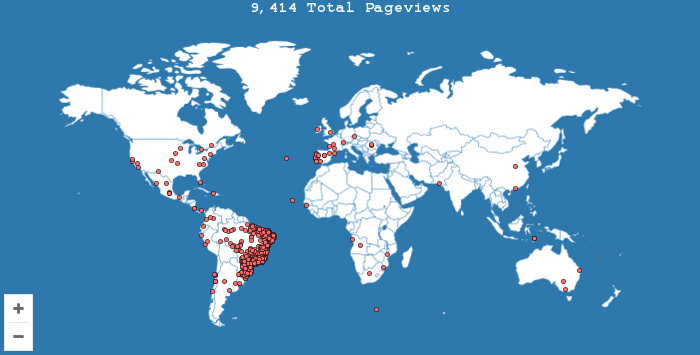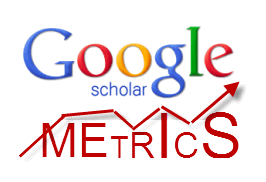Integrating Computational Thinking as a teaching methodology at the fulltime town school Dr. Afrânio de Freitas Azevedo
DOI:
https://doi.org/10.31496/rpd.v24i49.1624Keywords:
computational thinking, teaching methodology, fulltime, curriculumAbstract
The article proposes to present the integration of Computational Thinking as teaching methodology at the fulltime town school Dr. Afrânio de Freitas Azevedo and show the importance of continued training for teachers in incorporating computational skills in the educational curriculum to prepare students for current digital and technological world. It is configured to be a qualitative case study, outlined by bibliographic and documentary research. The study states that, when well applied, this methodology enhances cognitive development, logical reasoning and the problem-solving capacity of students, preparing them in a more comprehensive way for the future demands.
Downloads
References
BLIKSTEIN, P. O pensamento computacional e a reinvenção do computador na educação. Nova Iorque: Blikstein, 2008. Disponível em: http://www.blikstein.com/paulo/documents/online/ol_pensamento_computacional.html. Acesso em: 20 mar. 2022.
BRACKMANN, C. P. Desenvolvimento do Pensamento Computacional através de atividades desplugadas na Educação Básica. 2017. 171 f. Dissertação (Mestrado em Informática na Educação) – Universidade Federal do Rio Grande do Sul, Porto Alegre, 2017. Disponível em: http://hdl.handle.net/10183/172208. Acesso em: 07 mar. 2022.
BRASIL. Base Nacional Comum Curricular (BNCC): educação é a base. Brasília: Ministério da Educação, 2018.
BRASIL. Ministério da Educação. Base Nacional Comum Curricular. Brasília: Ministério da Educação, 2022.
BRASIL. Conselho Nacional de Educação. Câmara de Educação Básica. Parecer CNE/CEB Nº 2/2022. Normas sobre Computação na Educação Básica. Brasília: Ministério da Educação, 2022.
GATTI, B. A. Formação de professores no Brasil: características e problemas. Educação & Sociedade, Campinas, v. 31, n. 113, p. 1355-1378, 2009.
KAFAI, Y. B.; RESNICK, M. (ed.). Constructionism in practice: designing, thinking, and learning in a digital world. Mahwah: Lawrence Erlbaum Associates, 1996.
NÓVOA, A. Evidentemente: sobre o estado da arte. Revista Brasileira de Educação, Rio de Janeiro, n. 25, p. 5-19, 2004.
PAPERT, S. Mindstorms: children, computers, and powerful ideas. New York: Basic Books, 1980.
PERRENOUD, P. Dez novas competências para ensinar. Trad. Patrícia Chittoni Ramos. Porto Alegre: Artmed, 2000.
PIMENTA, S. G. O estágio na formação de professores: unidade teoria e prática? 5. ed. São Paulo: Cortez, 1994.
RESNICK, M. Computer as paintbrush: technology, play, and the creative society. In: SINGER, D.; GOLIKOFF, R.; HIRSH-PASEK, K. (ed.). Play = learning: how play motivates and enhances children's cognitive and social-emotional growth. New York: Oxford University Press, 2006.
RESNICK, M. Lifelong kindergarten: cultivating creativity through projects, passion, peers, and play. Cambridge: MIT Press, 2017.
SBC. Diretrizes para ensino de Computação na Educação Básica. 2017. Disponível em: http://www.sbc.org.br/documentos-da-sbc/send/131-curriculos-de-referencia/1177diretrizes-para-ensino-de-computacao-na-educacao-basica. Acesso em: 14 mar. 2020.
SEVERINO, A. J. Metodologia do trabalho científico. 23. ed. rev. e atual. São Paulo: Cortez, 2007.
STAKE, R. E. Case Studies. In: DENZIN, N. K.; LINCOLN, Y. S. (Ed.). Handbook of qualitative research. London: SAGE Publications, 1994. p. 236-247.
TURING, A. Computing Machinery and Intelligence. Mind, [S.l.], v. LIX, n. 236, p. 433-460, out. 1950. doi: 10.1093/mind/LIX.236.433.
VALENTE, J. A. Integração do pensamento computacional no currículo da educação básica: diferentes estratégias usadas e questões de formação de professores e avaliação do aluno. Revista e-Curriculum, São Paulo, v. 14, n. 3, p. 864-897, set. 2016. ISSN 1809-3876. Disponível em: https://revistas.pucsp.br/curriculum/article/view/29051. Acesso em: 13 mar. 2022.
VALENTE, J. A. O pensamento computacional e a reinvenção do computador na educação. In: SANTOS, A. P.; MOREIRA, A. F. (org.). Pensamento computacional: ensino, pesquisa e inovação. Porto Alegre: SBC, 2016. p. 21-36.
VICARI, R. M.; MOREIRA, A. F.; MENEZES, P. F. B. Pensamento computacional: revisão bibliográfica. Projeto UFRGS/MEC, 2018. 192 p. Disponível em: http://hdl.handle.net/10183/197566. Acesso em: 29 mar. 2022.
WING, J. M. Computational thinking. Communications of the ACM, New York, v. 49, n. 3, p. 33-35, 2006.
WING, J. M. Pensamento computacional: um conjunto de atitudes e habilidades que todos, não só cientistas da computação, ficaram ansiosos para aprender e usar. Revista Brasileira de Ensino de Ciência e Tecnologia, v. 9, n. 2, 2016. Disponível em: https://periodicos.utfpr.edu.br/rbect/article/view/4711. Acesso em: 10 mar. 2020.
Downloads
Published
How to Cite
Issue
Section
License
Submitted texts approved by the Editorial Board of Revista Profissão Docente will be published, and their authors may use them for future publications, provided that the original edition is properly cited (title, Revista Profissão Docente, volume, issue, year of publication, and page numbers of the referenced text). All articles published in this journal are the sole responsibility of their authors. Revista Profissão Docente and Universidade de Uberaba assume no legal responsibility for their content.
















